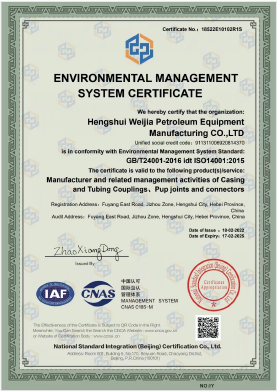- Afrikaans
- Albanian
- Amharic
- Arabic
- Armenian
- Azerbaijani
- Basque
- Belarusian
- Bengali
- Bosnian
- Bulgarian
- Catalan
- Cebuano
- Corsican
- Croatian
- Czech
- Danish
- Dutch
- English
- Esperanto
- Estonian
- Finnish
- French
- Frisian
- Galician
- Georgian
- German
- Greek
- Gujarati
- Haitian Creole
- hausa
- hawaiian
- Hebrew
- Hindi
- Miao
- Hungarian
- Icelandic
- igbo
- Indonesian
- irish
- Italian
- Japanese
- Javanese
- Kannada
- kazakh
- Khmer
- Rwandese
- Korean
- Kurdish
- Kyrgyz
- Lao
- Latin
- Latvian
- Lithuanian
- Luxembourgish
- Macedonian
- Malgashi
- Malay
- Malayalam
- Maltese
- Maori
- Marathi
- Mongolian
- Myanmar
- Nepali
- Norwegian
- Norwegian
- Occitan
- Pashto
- Persian
- Polish
- Portuguese
- Punjabi
- Romanian
- Russian
- Samoan
- Scottish Gaelic
- Serbian
- Sesotho
- Shona
- Sindhi
- Sinhala
- Slovak
- Slovenian
- Somali
- Spanish
- Sundanese
- Swahili
- Swedish
- Tagalog
- Tajik
- Tamil
- Tatar
- Telugu
- Thai
- Turkish
- Turkmen
- Ukrainian
- Urdu
- Uighur
- Uzbek
- Vietnamese
- Welsh
- Bantu
- Yiddish
- Yoruba
- Zulu
well casing extension coupling
Understanding Well Casing Extension Couplings An Overview
The oil and gas industry relies heavily on advanced technologies and materials to ensure the safe and efficient extraction of hydrocarbons. Among these technologies, well casing is a fundamental component in the construction and operational integrity of wells. One of the key elements involved in well casing is the extension coupling, which plays a significant role in connecting sections of casing during drilling operations. This article delves into the importance of well casing extension couplings and their impact on drilling efficiency.
What is Well Casing?
Well casing is a series of steel pipes that are inserted into the borehole after drilling to provide structural support and prevent the collapse of the well. Casing also isolates water zones from the hydrocarbon reservoir, protecting the environment from contamination. The casing is cemented in place to create a seal that maintains well integrity.
The Role of Extension Couplings
During the drilling and casing process, sections of casing are often added to reach greater depths. This is where well casing extension couplings come into play. These couplings are specially designed to connect two sections of casing, ensuring a secure and robust link that can withstand the high pressures and harsh conditions found in the subsurface environment.
Extension couplings are critical for several reasons
1. Structural Integrity Casing must withstand extreme forces, including internal pressure from fluids and external pressures from surrounding rock formations. Extension couplings are engineered to provide the necessary strength and durability to maintain well integrity.
2. Ease of Installation Extension couplings facilitate quicker and more efficient installation of casing. By allowing the addition of casing sections without the need to re-drill or modify existing sections, these couplings enhance operational efficiency.
3. Sealing Performance A well-designed extension coupling ensures a tight seal between adjacent casing sections. This is crucial for preventing fluid migration and maintaining the necessary pressure within the wellbore.
4. Versatility Extension couplings are available in various sizes and designs to accommodate different casing specifications and operational requirements. This versatility allows operators to customize their casing solutions based on the specifics of the well.
well casing extension coupling

Types of Extension Couplings
There are several types of extension couplings, each designed for specific applications
- Threaded Couplings These are the most common type of extension couplings, featuring male and female threaded ends that screw together. They allow for easy and reliable connections.
- Welded Couplings In cases where additional strength is required, welded couplings can be used. These couplings are welded onto the ends of casing sections, providing a more permanent bond that can handle higher pressures.
- Slip-on Couplings These couplings slide over the ends of two casing sections and are then secured with bolts or other fastening methods. They are often used in applications where adjustable connections are needed.
Challenges and Considerations
While well casing extension couplings provide numerous benefits, they also present certain challenges. Ensuring the proper alignment and sealing characteristics of the couplings is paramount to avoid leaks or failures. Therefore, rigorous testing and quality control measures must be implemented during manufacturing and installation processes.
Additionally, considerations regarding corrosion resistance and compatibility with various fluids are essential. The environmental conditions in which the casing operates can significantly impact the longevity and performance of extension couplings. Therefore, selecting the right materials and protective coatings is crucial for extending the lifespan of the casing system.
Conclusion
Well casing extension couplings represent a vital link in the oil and gas extraction process. By facilitating the secure connection of casing sections, these couplings contribute to the overall safety, efficiency, and effectiveness of well construction. As the industry continues to evolve and face new challenges, innovation in coupling technology will remain essential. Understanding the role and function of these components not only aids operators in choosing the right materials but also enhances the potential for successful drilling operations in the future.
-
Tubing Pup Joints: Essential Components for Oil and Gas OperationsNewsJul.10,2025
-
Pup Joints: Essential Components for Reliable Drilling OperationsNewsJul.10,2025
-
Pipe Couplings: Connecting Your World EfficientlyNewsJul.10,2025
-
Mastering Oilfield Operations with Quality Tubing and CasingNewsJul.10,2025
-
High-Quality Casing Couplings for Every NeedNewsJul.10,2025
-
Boost Your Drilling Efficiency with Premium Crossover Tools & Seating NipplesNewsJul.10,2025







